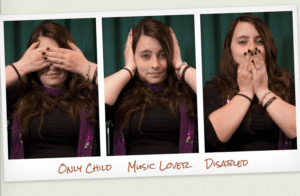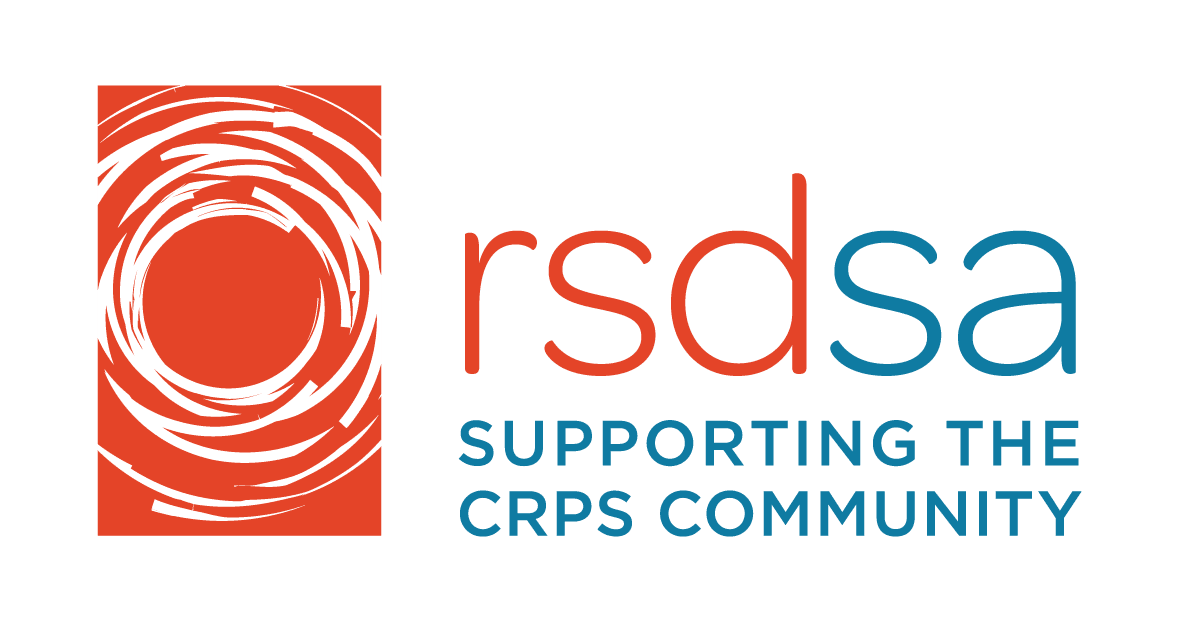
By Samantha Barrett for the RSDSA blog.
Sometimes, people can be downright mean. When awareness is a crucial part of living with CRPS/RSD, what do you do when someone tells you that you should keep quiet about it?
I’ve had CRPS for just about 10 years now. I was diagnosed as a pediatric patient. Being a teenager, I got easily irritated when people didn’t know what CRPS/RSD was or why I was still on crutches. People wrote posts on MySpace about me, calling me a faker. I lost a lot of friends because they didn’t understand why I couldn’t go to the movies or have sleepovers. To say I was angry would be an understatement. But I didn’t want to let that anger consume my life in a negative way, I wanted to turn it into something positive. I started raising awareness for CRPS/RSD within a year of being diagnosed. I used my awareness events to help educate my peers, my teachers, my family, and members of my community about what I was going through. There were more people out there with CRPS/RSD and that’s what drove me even more- I needed to be the voice for others with this monster. Because of this, I made friends that had CRPS/RSD. Some people from my town came out to the event in tears because they thought they were alone in their journey. I even had people that I knew get diagnosed with CRPS/RSD after my events because they had access to the information they needed. It was an amazing feeling.
I got a job at a bank my senior year of high school. My CRPS had been under control for a bit, but then I flared terribly. I ended up on crutches. Still, I went to work and smiled because I loved what I did. One day, the branch manager called me into his office and asked how long I was going to be on crutches. I said I didn’t know because I had a disability called Reflex Sympathetic Dystrophy and I was sometimes in a wheelchair. He didn’t know what to say and sent me back to the drive up window. The next day, he called me into the office. He said he spoke to HR and they gave him permission to fire me if I stayed on crutches too long because it prevented me from doing my job (note: the only part of my job I couldn’t do was carry my drawer from the vault to the drive up window because I needed two hands to crutch). I was absolutely devastated. He hadn’t fired yet, but I knew that you couldn’t just get rid of a disability. I kept working there for a while. What he said was illegal, but I loved what I did.
I talked to some people that I knew about what he said. A lot of people were outraged and said I should report him. That made me feel better because it showed me that I wasn’t in the wrong for being disabled, especially since I was a great teller. But then I had someone who acted outraged and mortified beyond what everyone else had expressed. The difference, however, was that this person was directing these emotions at me. I will never forget what this person said to me. They said: “You should never, ever tell anyone about being disabled. Do you want to be an outcast? You’ll never work, and people will not want to be around you. To get through life, you can’t tell anyone that you’re disabled.” This was after about four or five years with CRPS/RSD. I couldn’t believe it. Hide something that was so important to me? Hide something that I was trying to become an awareness advocate for? That wasn’t me. This hurt me down to my core, even more so than my manager saying he would fire me for being disabled. This was someone I cared about ultimately telling me that I didn’t belong in society if I was disabled. It was such an old fashioned way of thinking. I’ll admit, young me thought about staying silent about CRPS/RSD for a bit. But I came to my senses.
As I went through college, I continued to have my ups and downs with CRPS/RSD. But I maintained over a 3.9 GPA while working at least two jobs. I made sure to have an accommodation plan in for my school and all of my bosses were aware of my disability. Everyone was willing to work with me to make sure I could still be the best me and not miss out on opportunities just because I was flaring. During college, I went for a job as a dance team coach. I showed up for this interview in my wheelchair, as I was in one of the worst flares I’ve ever had. (Fun fact: I was an assistant dance teacher from ages 10-15 and was injured during that time which lead to CRPS/RSD). I had experience teaching from a chair, as the owner of my old dance studio made sure to give me the skills I needed to still pursue my passion even if I couldn’t move as well. Because of this, I got the job. I was absolutely ecstatic. To celebrate, I posted on Facebook, including the fact that I had been in the wheelchair when I was hired. Normally, I do not disclose the fact that I am disabled in job interviews, but it was a little blatant that time around (I do end up telling them once I am hired though). That night, my phone rang. I answered, knowing the person was calling me about my job. I assumed what I would hear was excitement, but it ended up being a similar tune I had heard years prior. How could I, a disabled person, tell my employer I was disabled? Clearly, I must not want the job that much if I made it known I was disabled. Why didn’t I get out of my wheelchair for the interview… What?! It didn’t seem to matter I was successfully getting jobs, but it did seem to matter that I was “tarnishing” my name. This time, I didn’t care as much about what this person was saying. This person was wrong and I was finally able to come to terms with that. I knew they would keep that outlook, but I didn’t need to adopt that outlook, I could keep my own.
Through the years, I continued to be an awareness advocate. I’d have awareness days at my college, throw fundraising events, and encourage people to search what CRPS/RSD was. Answering any questions about why I have to use a cane/wheelchair despite being so young became second nature. I have a voice; I want it to be heard. My goal is to make a difference in the world and help people understand both CRPS/RSD and that people living with disabilities can still go on to lead productive, happy lives. Being disabled in today’s world doesn’t mean what it used to. We are capable of having friends, having fun, being great sons/daughters/aunts/uncles/nieces/nephews/parents/grandparents, and so much more. I like to think of myself as differently abled, not “disabled.” Because of my voice, I have little cousins that don’t think using a cane/wheelchair is something “weird” or ” scary.” They know that I hurt and need some help, but that I can still be fun.
Every day, I get to use my voice to help others that live with CRPS/RSD. That is one part of my life that truly makes me happy. People will often ask me what they can do to raise awareness, even among their friends and family. My number one piece of advice is to never let anyone silence you. It’s not easy to talk about CRPS/RSD, but the more you are able to educate people, the more they can understand. And by using your voice, you are planting the seed. You could help another person get diagnosed. Maybe you could change how someone sees people living with disabilities. You can become someone’s hero without even knowing. Our voices are strong, whether we use them individually or as a community. You are an important piece of the awareness puzzle that we have to work together to assemble.
